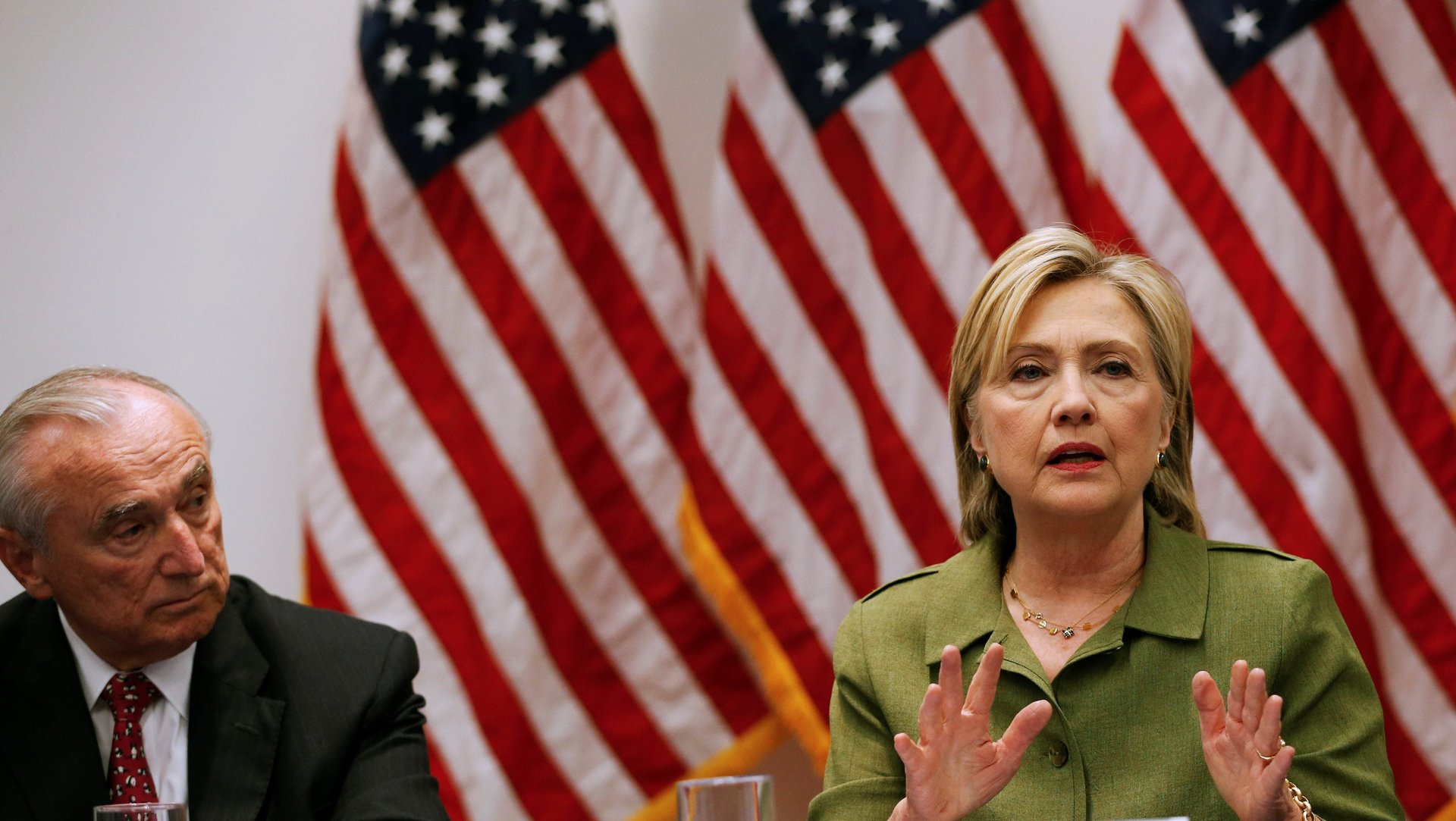Who will the police back in the US election?
Hillary Clinton is meeting behind closed doors with top law enforcement officials on Thursday, August 18 at a time of particularly tense relations between police and the public, following several police shootings this summer and killings of police officers in Dallas and Baton Rouge.


Hillary Clinton is meeting behind closed doors with top law enforcement officials on Thursday, August 18 at a time of particularly tense relations between police and the public, following several police shootings this summer and killings of police officers in Dallas and Baton Rouge.
They will be discussing the “challenges and opportunities” that the police face; participants will include New York police commissioner Bill Bratton, Los Angeles police chief Charles Beck, former Philadelphia and DC chief Charles Ramsey, The Washington Post reported. Members of this group have been actively advocating for criminal justice reform in recent months.
Thus far, Clinton, whose campaign surrogates include mothers of victims of high-profile police shootings, has been cautious about appearing too cozy with law enforcement. The country’s largest police union, National Fraternal Order of Police (FOP), was vocally outraged when the Democrat did not return a questionnaire the union gives to presidential candidates to determine whom to endorse in early August.
“It sends a powerful message. To be honest with you, I was disappointed and shocked,” Chuck Canterbury, the union’s president told The Hill at the time. ”You would think with law enforcement issues so much in the news that even if she had disagreements with our positions, that she would’ve been willing to say that.”
The union’s representatives met with her opponent Donald Trump, however, according to Politico. For Trump, an endorsement from the powerful union, who has a strong presence in swing states such as Ohio and Florida, would boost his message of being the “law and order” candidate. On the flip-side, if Clinton scored the backing, it would undermine the credibility of Trump’s message.
FOP has not yet announced its endorsement, the board will vote on the matter in early September. But if the last election is any indication they may not back a candidate at all. In 2012, the union, who boasts 330,000 members, refused to support both Mitt Romney and Barack Obama.
Traditionally, the only unions that Republican politicians court are the police and firefighters associations, symbols of law and order, well-liked among the party’s voters. Last year, he received an endorsement from the 5,000-member New England Police Benevolent Association.
“Listen, our message very clear: It’s what is the next president of the United States going to do to unite this country in an effort to save police officers? Because it’s open season on police officers,” Jerry Flynn, the executive director of the union said before the union board cast its ballots before the endorsement vote. Trump said at the time that he would support death penalty for those who killed police officers.